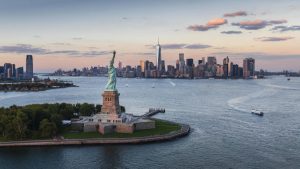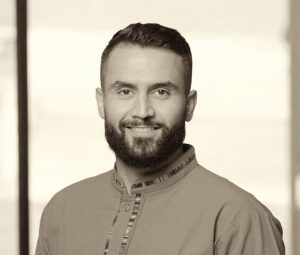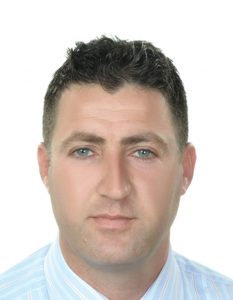Nineteen years after 9/11

It’s been almost two decades since the events of 9/11, one of the episodes that changed the American and world history forever in the 19th century. The September 11, 2001 attacks, which killed nearly 3,000 people in the United States, triggered the American government’s “War on Terror” and changed the global geopolitical situation.
The attack showed for the first time the vulnerability of the world’s largest military power in its own territory. The US response and the search for the culprits of the tragedy led the country to the invasion of Afghanistan in 2001 and Iraq in 2003, two countries accused of supporting al-Qaeda.
Today, the World Trade Center region in New York holds a memorial in honor of the victims of 9/11 – one of dozens of spaces built around the country. But the impact of the episode in the United States went beyond the stone memorials and the memories of those who watched the tragedy. The reflections of 9/11 are seen on all sides of the American political spectrum, both in the Republican and Democratic parties. From Bush to Obama, the two decades that followed the attack impacted US policy and global security. Under President Donald Trump, in power since 2016, clashes with the Arab world continue to be frequent.
Today we have to live with the scars and the shadows of 9/11 and most of the countries in the world were forced to improve their own security. Since there it has emerged the Preventive State and we have to face more control in borders, airports, public spaces, cities and in our lives. 19 years later the relationship between the West and the Arab world it’s still complex. Ahmed Ajil is a doctoral researcher in the Criminal Justice School at University at Lausanne in Switzerland and, until July of this year, Ajil was working as a researcher at Université Laval, in Quebec. Ajil took the time to answer a few questions to Milénio Stadium and underline that terrorists don’t have a specific profile, which means that the threat can came from everywhere.
So far, Ahmed Ajil has conducted around 60 interviews in Switzerland and Lebanon with individuals who are or were engaged in political violence (jihadist, Shiite militias, left-wing, right-wing), individuals who display or express pro-violent attitudes and sympathy with violent groups, as well as individuals who are politically engaged in a non-violent manner; security experts, government officials, religious authorities and field researchers.
Jamil Ammar is an Academic Associate at the Center on Hate Bias and Extremism (CHBE), Faculty of Social Science and Humanities, Ontario Tech University. Ammar has a PHD and as a teacher he explores topics related to cyber security, Al-Qaeda and ISIS violent jihadi groups. Jamil taught many counter-terrorism related courses in Canada and in the United States. In an interview with Milénio Stadium, Ammar recognizes that Canada made some efforts to fight terrorism, but some of the recent episodes show that terrorism is still a concern.
Milénio Stadium: How can terrorism damage human rights and the democracy?

Ahmed Ajil: Terrorism in the sense of large-scale violent attacks against civilians can be considered a crime against humanity. It is superfluous to question whether terrorism violates human rights and the foundations of democracy. However, the way a state chooses to respond to the phenomenon designated as terrorism has proved to be highly dangerous for human rights and democracy. In fact, the rise of the Preventive State in the age of the Global War on Terror has enabled immense human rights violations including unlawful offshore detention and extrajudicial killings. These policies and practices target, most problematically, Black and Brown bodies that are classified as dangerous. Others, public enemies and therefore non-citizens whose rights and lives matter less.
Jamil Ammar: To understand the impact of terrorism on human rights and democracy, one has to pay regard to the so-called ‘Jujitsu Politics’ (McCauley and Sophia,2011). Jujitsu politics means terrorist groups such as al-Qaeda or ISIS often count on “reactions” to advance their cause. By staging and recording barbaric executions of mostly innocent civilians, terrorist groups provoke outrage and a sense of humiliation that trigger emotional, ferocious and often disproportionate reactions against not only the perpetrators of terrorist activities but equally important, their communities at large, undermining democracy and the processes of social justice. For example, the U.S. led coalition and allied have been fighting terrorist groups in the Middle East for over a decade. This intervention in the Middle East has not only led to partial defeat of al-Qaeda and Daesh but has also led to the killing of innocent civilians. Atrocities against innocent civilians, lack of respect to human rights cause mass radicalization and cultivate an environment in which violence and antipathy towards non-Muslims can be readily justified, thus fueling violence even further.
MS: How did 9/11 changed the Western world?
Ahmed A: It’s important to recall that there have been large-scale violent attacks by non-state actors before 9/11. None had been, however, as devastating and had cost as many human lives as 9/11. Crucially, on a symbolic level, it was the first time the violence that the United States had become very familiar with abroad, at the global periphery – through the various wars waged after WWII – struck back into the heart of the metropolis.
9/11 was the birth of the ‘Global War on Terror’ (GWOT), a hyper-masculinist and imperial-militaristic project that sought to eradicate terror in its roots by invading Afghanistan and Iraq. While some saw this as a reaction to the attacks, the GWOT might be better conceptualised as a continuation of US foreign policy and an escalation of a vicious cycle of death and destruction. While after 9/11, the efforts to counter and combat terrorism were directed to theatres in the Global south, this changed around 2004 and 2005, when the attacks in Madrid, London and Amsterdam took place. From then on, the image of a “foreign enemy” was complemented with the image of a “domestic enemy” who had “radicalised” to the point of attacking the country he had grown up in. Efforts and policies of counterterrorism were then complemented by efforts to prevent radicalisation and violent extremism. As a result of these tendencies, the Western World has seen the emergence of the Preventive State: a legal and political structure that aims at preventing terrorist attacks at any cost, even to the detriment of civil liberties and human rights, using for example surveillance, infiltration, widening anti-terror provisions, preventive measures including detention outside criminal procedures, stripping of citizenship and deportations.
Jamil A: The terrorist attack of September 11 set in motion events that would change the course of life in the Western world; impacting geopolitics, societies and cultures. In particular, four major factors have shaped the Western world post-9/11. The first is the disproportionate focus on international terrorism- as oppose to home-grown terrorism, which is still the case to date, especially in the United States. The second factor is the heavy politicization of the terms terrorists and terrorism. As a result, both terms have lost their meanings in many parts of the world. Autocratic states wage wars against their adversaries and justify their policies in the name of fighting terrorism. Even democratic countries such as the United States, publicly contradicts its own counter-terrorism objectives, turning a blind eye to atrocities and violations committed by wealthy states and other sub-state terrorist organizations. The killing of Jamal Khashoggi, a journalist and Saudi critic, and the war on Yemen are two revealing examples of America’s selective attention. A few years after the 9/11 attack, the failed terrorist incident by Nigerian Umar Farouk has led to new waves of visa restrictions for millions. Suddenly, “isolation” has become a key security component. The last and perhaps the most troubling post 9/11 trend is the constant assault on democracy, privacy, and free speech under the guise of war on terrorism.
MS: What is the relation between terrorism and the proliferation of weapons of mass destruction?
Ahmed A: It’s really important to nuance what you mean by terrorism. From a legal point of view, even sharing videos on Facebook can be considered as propaganda and therefore as terrorism. In material terms, this is a very different act than preparing to launch a large-scale attack aimed at civilians. If we are strictly talking about international terrorist organisations that have a record of planning and executing violent attacks aimed at non-combatants, then it should not be surprising that such organisations attempt to procure biological, chemical or even nuclear weapons. To my knowledge, no terrorist organisation worldwide has had the ability to effectively do so. Unless we consider states as potential terrorist agents as well.

Jamil A: The threat of terrorism has long been on the United Nations’ agenda, even before the 9/11 attack. The objective of United Nations Security Council in resolution 1540 (2004) is to prevent terrorist groups from laying their hands on nuclear, chemical and biological weapons. In this context, failed or failing states pose credible threats. Failed states act as incubators of terror. The fall of the city of Mosul in Iraq is a good example. In 2014, in Mosul, the Islamic State militants confiscated weapons worth millions. More troubling, the terrorist group used the city’s military infrastructure to produce weapons on a scale and sophistication which matches national military forces. For this reason, it is vital to prevent any unstable rogue nation from acquiring nuclear weapons. Had Iraq acquired nuclear weapons, one could fairly argue that Daesh would have been the first terrorist group with nuclear capability.
MS: What is the most common terrorist profile?
Ahmed A: There’s no such thing as a terrorist profile. In general, it can be said that terrorism is a sociopolitical phenomenon and can be largely traced back to structural and systemic dysfunctionalities of socioeconomic, political, legal or symbolic nature. Hence, it is not so much a particular profile that should be sought but particular conditions and circumstances that may foster non-state violence. The group of the so-called “Islamic State” is the more or less immediate product of the US invasion in Iraq and the Syrian civil war. Other forms of violent rebellion that are classified as terrorism are the result of political oppression and socioeconomic deprivation by the ruling class.
Jamil A: An accurate terrorist profile doesn’t exist. Terrorists come from all walks of life. The terrorist group Daesh successfully and effectively managed to recruit men, women, single, married, healthy, and individuals with special needs from over 100 nationalities. Al-Qaeda’s recruiting Manual focuses in the importance of recruiting “suitable” rather than eager candidates (individuals who are keen to join the terrorist group). Al-Qaeda’s Manual specifically highlights the importance of recruiting individuals who are not under the police radar and preferably not very religious. That is why databases that profile typical terrorist need to be updated constantly.
MS: In Canada, convicted terrorists like most other criminals have finite sentences, which means that they will eventually be released from prison. Is this a problem to public safety? Monitoring them can be a big time-consuming and expensive.
Ahmed A: In any country with a functioning rule of law, criminal sentences should have an end date. The primary objective of a criminal sanction should be to help the convicted individual reintegrate into society. Given the vast array of acts that have been criminalised, the population of incarcerated “terrorists” is extremely heterogeneous. Most individuals have not engaged in any violent activity and will not pose more risks than ordinary citizens. In the case of a minority of convicted individuals who have engaged in violent acts and continue to have strong connections with terrorist networks or who clearly display a willingness to continue engaging in violent acts, security and intelligence services will have to remain vigilant. It is important, however, to recall that the way state actors engage with the individual and the measures imposed on them can have a radicalising effect on themselves. Any measure in the case of the most problematic individuals should continue to create space for discussion, debate and learning, while making sure that security measures are in place.
Jamil A: Once released, terrorists pose formidable economic and security challenges. Released terrorists could potentially be a ticking time bomb. Compounding the issue is that most released terrorist fighters do not prove to be an immediate threat upon their release, their terrorist activities could take place awhile after they are freed. In the same vein, oftentimes, the efforts to curb terrorism including the processes of “reintegrating”, “disengaging” or “rehabilitating” terrorists suffer critical setbacks. Usman Khan’s killing of Jack Merritt, a course coordinator for Learning Together (Cambridge Center for Teaching and Learning 2018) and the recent police shooting of Sudesh Amman are two troubling examples. In both cases, the attackers (Usman and Sudesh) were convicted terrorists released on “license” (BBC 2020). Such setbacks are quite common in the field of counter terrorism.
MS: How are deradicalization programs working in the country? Some convicted terrorists have been released on the condition that they receive religious counselling. Do we have evidences that this is effective in preventing a return to terrorism?
Ahmed A: The notion of deradicalization is rather problematic, for it presumes that the problem lies primarily in the individuals’ minds, while more often the sources of the problem can be found in the immediate social and the larger political environment. It is more effective, in most cases, to work on the structural conditions, employment opportunities, social networks, etc. which will in turn effect the desired cognitive adaptations. In the case of individuals who are rigid in their views and continue to defend an ideology that is based on racist and fascist hatred of a designated out-group, cognitive behavioural therapies may aim at challenging these views, sow doubts about black-and-white beliefs, increase ambiguity tolerance and, at best, spark a process of critical self-reflection.
Jamil A: There is no such thing as ideological-reverse engineering. Evidence sketchy on the impact of religious counselling in Canada, the United States and Europe. In a survey study (to be published shortly), entitled “No Country for a Returning Foreign Fighter? More Reasons for Repatriating Canadian IS Members in Custody”, we worked with 674 religious figures in dozens of mosques in the Greater Toronto Area in the period of June 1st, 2019– July 31st, 2019 to assess the views of the Muslim community on a number of issues connected with returning foreign fighters. When asked: ‘Do you believe there is a path for rehabilitation in society for individuals who have joined IS or Al Qaida?’, only 16.32% answered that there is a path for rehabilitation in society for individuals who joined Daesh. Almost the same percentage, (16.17%), answered the question in the negative. Another question in this survey study queries the extent to which Daesh returnees could be used to limit recruiting for terrorist groups. Only 11.42% of respondents strongly supported the view that IS returnees could help to limited recruitment for terrorist groups; 10.83% strongly disagreed with the same statement. These results cast serious doubts on the notion that terrorists could be safely released on the condition that they receive religious counselling.
MS: After the 1985 Air India bombing and the 9/11 Canada’s counterterrorism the laws were significantly altered. Are we more protected against terrorist attacks today?
Jamil A: Canada responded to terrorist attacks in a number of ways. For instance, the Criminal Code has been amended multiple times. Currently perpetrators of terrorist activities can be prosecuted for both domestic and international terrorism. The scope of the Canadian security intelligence service (CSIS) is expanded, and the definition of national security is broadened. In light of this, it is feasible to characterize the degradation of Daesh and al-Qaeda’s military capabilities as a partial success in the war on terror. However, the 2014 shootings at Parliament Hill, the attack on Canadian Armed Forces and the attack on an Indian restaurant in Mississauga, Ontario, (May 24, 2018) all seem to suggest that many other threatening security gaps are yet to be plugged.
MS: Can the counterterrorism activities
stop once a terrorist has been jailed?
Jamil A: Terrorism and radicalization leading to violence are two complicated challenges. Focusing on jailing terrorists, though necessary and popular, is hardly an effective strategy. Jailed or killed terrorists are often times replaced by more sophisticated comrades. A more sophisticated approach requires the tackling of all forms of violent extremism including neo-Nazis, white nationalists, proto-fascists, and far-right militia. All terrorism ought to be treated with the same urgency. Early prevention, building alliance with local communities, sharing and using knowledge are all important components for any effective counter-terrorism strategy.
Joana Leal/MS






Redes Sociais - Comentários